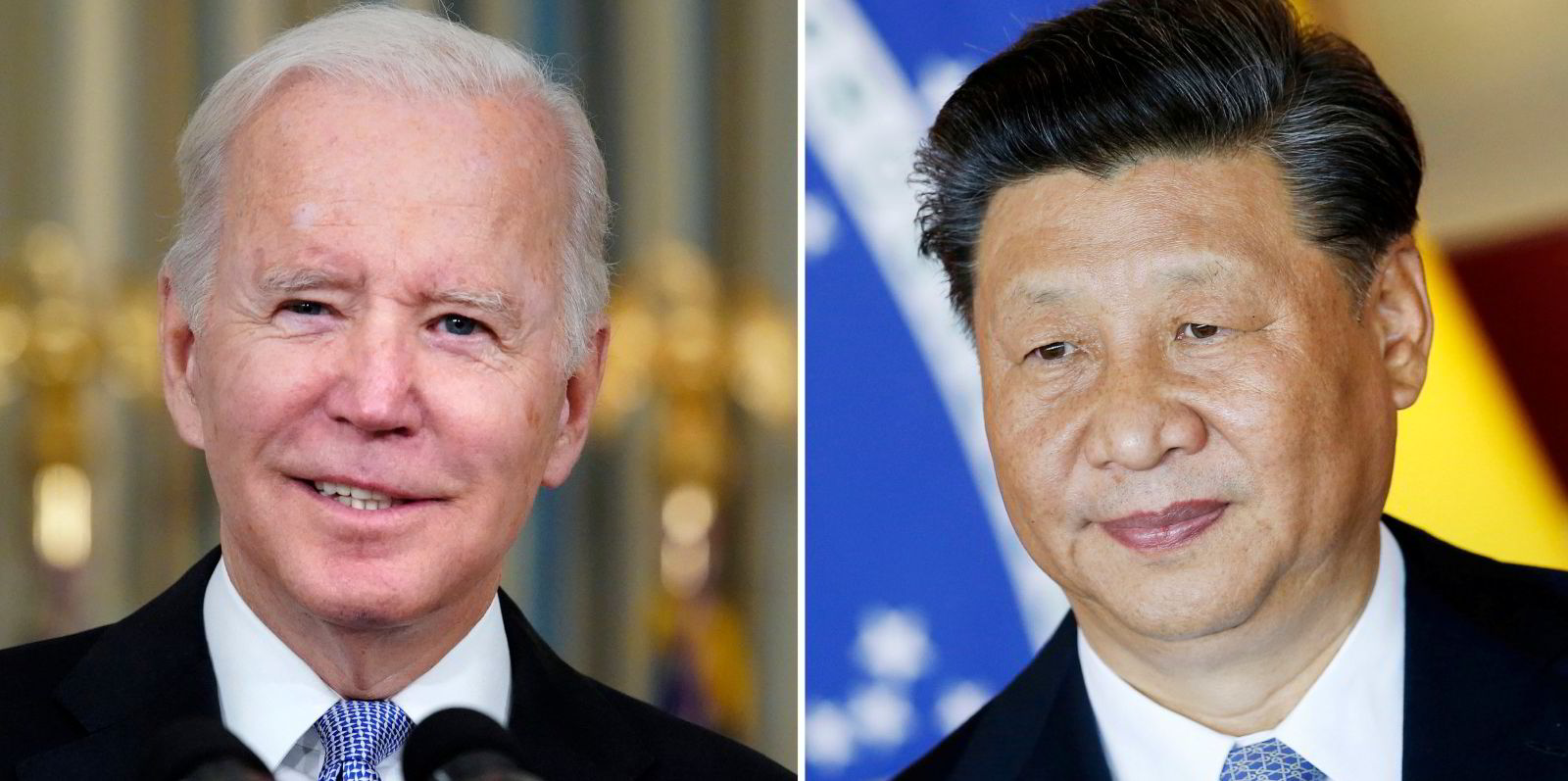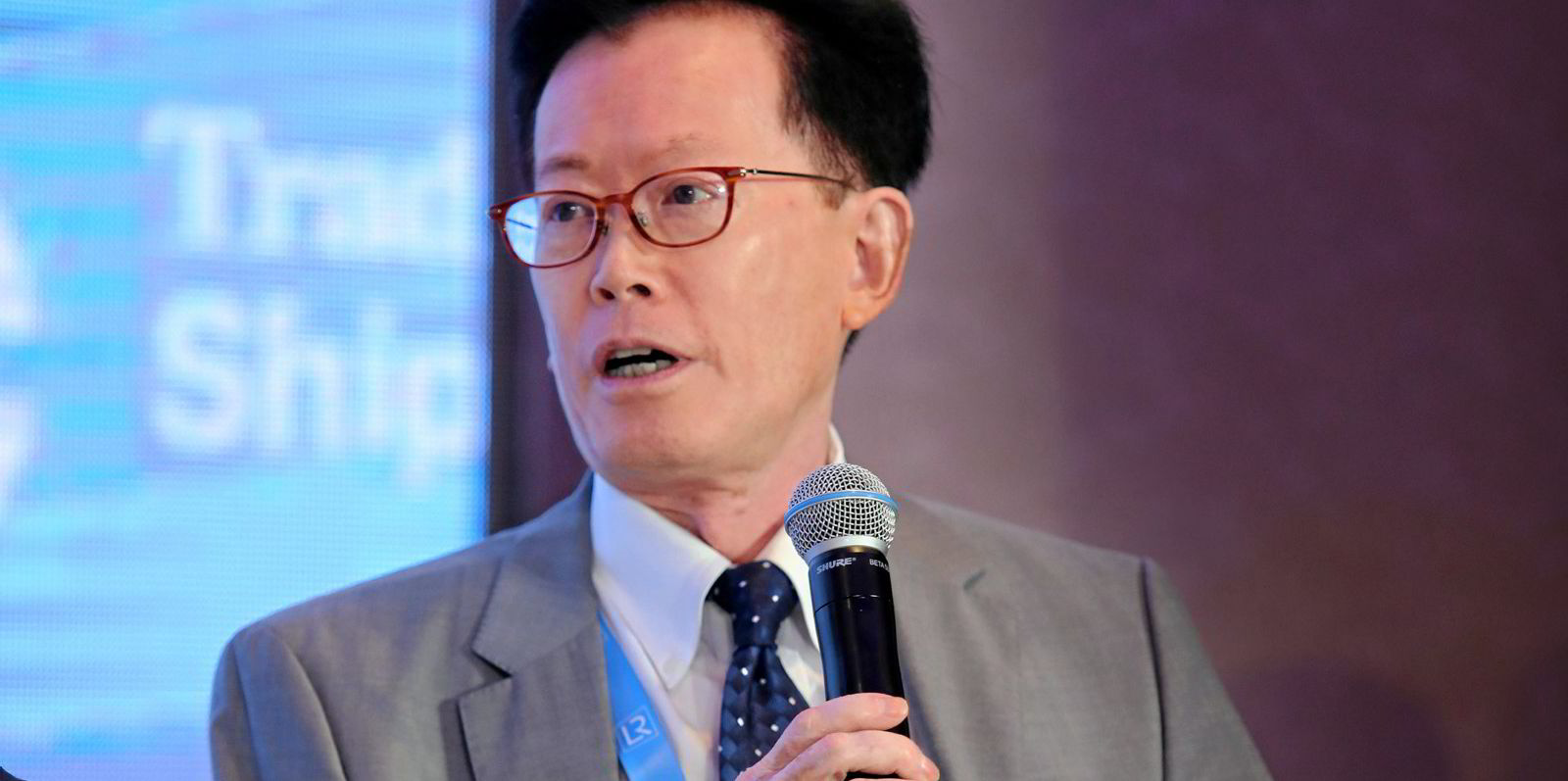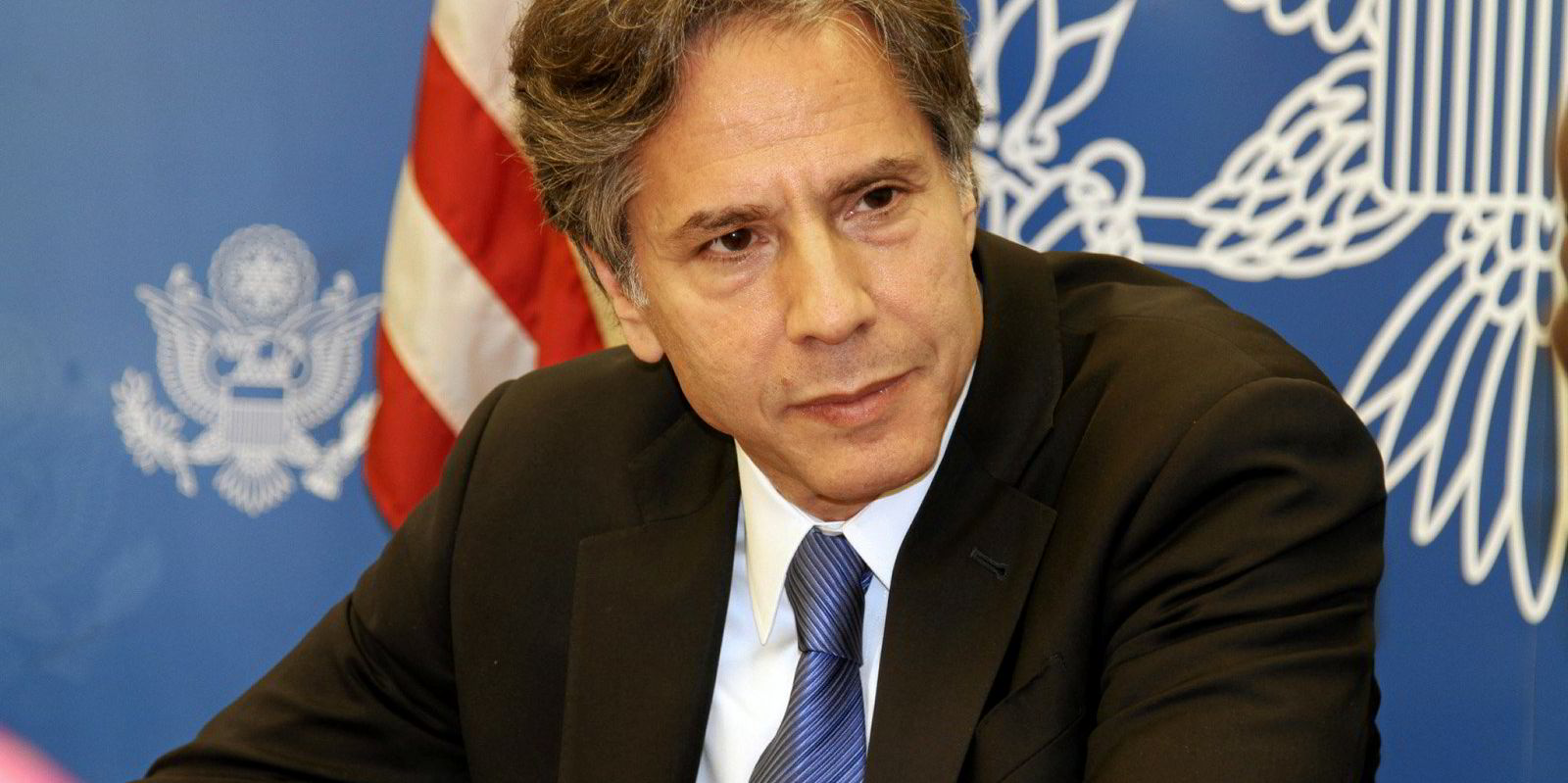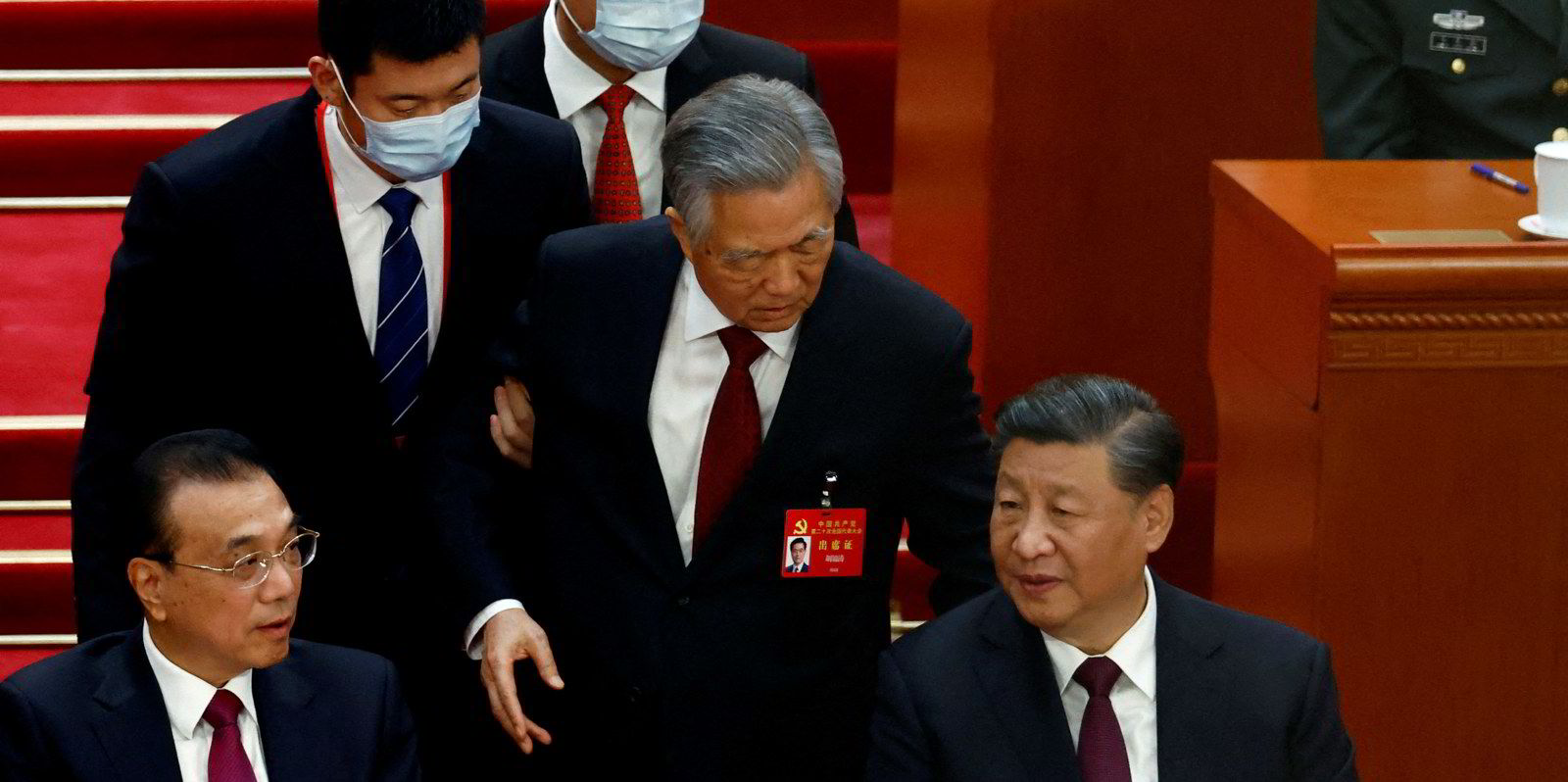To the Editor:
Re: “China’s Xi Jinping captain of the global ship” and “Blinken says new Taiwan crisis will hit global trade” (TradeWinds 28 Oct).
More than 2,000 years ago, the Greek historian Thucydides observed that when a rising power threatens the hegemony of an existing power it would ultimately result in war. He was recording the rise of Athens to challenge Sparta but in the 21st century, the obvious parallel is the rise of China to challenge the US.
Early in the Trump administration, the US designation of China changed from being a strategic competitor to that of a strategic adversary and US President Joe Biden has maintained this policy. Under US pressure the European Union and the Five Eyes group — the US, the UK, Canada, Australia and New Zealand — have fallen in line with this agenda. This demonisation of China has more to do with selective observations of the West rather than a change by China.
Contrary to the hyperbole of some Western media, China does not “claim the entire South China Sea (SCS)”. What China does claim are the islands in the SCS. This claim is nothing new. It was the Republic of China (ROC) that first claimed these islands in the 1920s.
During World War II, Japan occupied them and upon its surrender in 1945, the ROC, a US ally, sent navy ships on lend-lease from the US to reclaim these islands and it was the ROC that drew the “nine-dash lines”.
When the People’s Republic of China (PRC) was proclaimed in Beijing in 1949, it deemed itself the successor state and maintained all its territorial claims. Despite losing a civil war in mainland China and moving to Taiwan, the ROC continued to maintain a military and security presence on Taiping Island, the largest of the Spratly group, and Dongsha (Pratas) Island.
The US has numerous bases on Pacific islands it seized from Spain and Japan over the past century with the stated aim to contain China. The recent Quad and AUKUS alliances are overtly anti-China. It’s a natural reaction for China to set up frontline bases on SCS islands near choke points such as the Malacca Strait to protect its maritime routes.
Western media regularly bring up China’s refusal to recognise the Permanent Court of Arbitration’s 2016 ruling against its SCS islands claim but almost never report the UK’s refusal to recognise the International Court of Justice’s 2019 ruling against its continued occupation of the Chagos Archipelago in the Indian Ocean and by extension the US lease on its huge military base on Diego Garcia Atoll.
Red lines
Beijing’s basic position on Taiwan has not changed for decades which is that it can tolerate Taiwan’s de facto independence but its red line is Taiwan’s de jure independence. This premise was maintained by what is called the 1992 Consensus.
In that year, Taiwan’s then-ruling party, the Kuomintang — the one that lost the civil war in 1949 — reached an understanding with Beijing whereby both sides agreed that there is only one China and each side can interpret what that means.

For Taipei, that one China is the ROC and for Beijing, it is the PRC. On this basis, direct shipping and flights were inaugurated in 2008 after a 59-year hiatus. Problems arose in 2016 when the pro-independence Democratic Progressive Party (DPP) came to power in Taiwan and maintained that the 1992 Consensus is non-existent and that Taiwan already has de jure independence.
In the past, when the DPP ruled in Taiwan from 2000 to 2008, the US kept them on a tight leash when they lurched too close to de jure independence but now the US is actively encouraging it with Biden going as far as to say the US would send boots on the ground to defend Taiwan, a departure from its past policy of “strategic ambiguity”.
Singapore’s former prime minister Lee Kuan-Yew once said, “for China, Taiwan is a core issue and it will never give up. For the US, Taiwan is a peripheral issue”. It would be a tragedy for Taiwan to become another proxy war between major powers like Ukraine.
Regarding Western moral pronouncements against China’s political system, the fact is that China has always been a one-party state, this is nothing new. Saudi Arabia and Qatar are family-run fiefdoms yet the US maintains close political and military alliances with both. Liberal EU leaders also flock to these fiefdoms to secure replacement natural gas ironically because they want to sanction “authoritarian Russia”.
The US has even begun selling arms to Vietnam, also a one-party communist state, as part of its China containment plan. This makes moral lectures hypocritical.
The US Department of State is a major proponent of the slogan “Chinese Debt Trap” to refer to loans in the Belt and Road Initiative whereby China requires the project to act as security in case of a loan default. The US implies that this is some evil scheme.
English debt traps?
But most shipowners will be familiar with the requirement by banks to set first mortgages on their ships for loans and if there is a default the mortgagees would seize the asset. The vast majority of shipping loans are governed by English law, so why aren’t these called “English Debt Traps”?
China has a population four times that of the US so it is just a matter of time before its economy gets bigger. Militarily, it has no interest in being a global hegemon, but it does want to secure its maritime trade routes. Thucydides did not provide a solution to avoid a war between titans but hopefully, modern nations will have the wisdom to avert one by viewing issues objectively.
Hsu Chih-Chien (CC Hsu) is a Taiwanese
shipowner and controls Eddie Steamship
Do you have an opinion to share?
Email: news@tradewindsnews.com





